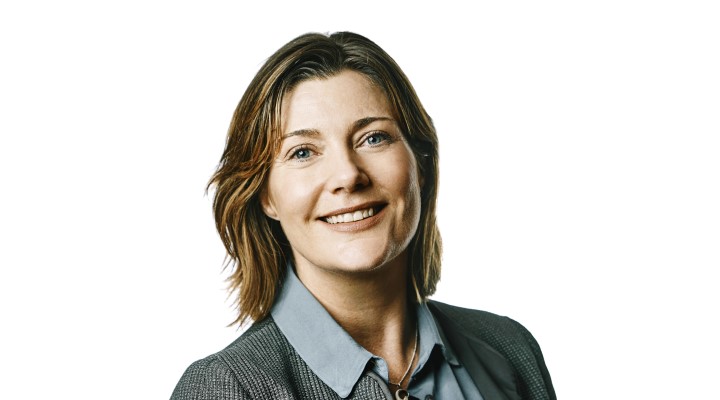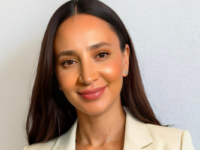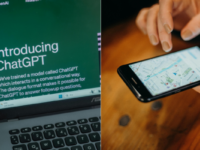Kate McHugh is a farmer’s granddaughter and the daughter of a beef trader so food was always viewed as a valuable resource when she was growing up. This led Kate to develop the KitchenHand.io app to help households save time, effort and money while avoiding food waste. The tool uses AI to write customised recipes for its users so they can prepare meals with what they have on hand.
Inside Small Business: What was the inspiration behind the launch of KitchenHand.io?
KM: As a sustainability executive, I am aware how much food is wasted. Globally, it’s almost a US$1 trillion [$1.55 trillion] market inefficiency. And in Australia, we waste almost $40 billion worth of food annually. What strikes me is that half of this value and one-third of the volume of food wasted in Australia is at the household level.
People like to think it’s supermarkets, food manufacturers and restaurants that waste food. Yet waste is a cost centre for these businesses so they measure and manage it accordingly. Households, on the other hand, often end up wasting a lot of food due to an overload of competing priorities.
ISB: And when and where did the business launch?
KM: At the time of the COVID outbreak, I had what looked like a great job on paper, yet I felt disconnected from meaningful impact. I spent more time talking about whether we were going to progress with updating plans, than actually doing anything that would be included in the plans. One afternoon I took myself off for a 20km walk (within my 5km radius, of course) and I realised that I was going nowhere in my job. From that point, I determined to start my own business.
“The recent evolution of AI has been a game changer.”
After considering various ways of addressing the problem of food waste, I zeroed in on household food waste last year. In January 2023, I built the recipe tool, which is now the backbone of KitchenHand.io and the business was rebranded and relaunched in March 2023 from my apartment in Sydney.
ISB: How in practice does the app help households save time, effort and money while avoiding food waste?
KM: Everything I have built in the app is grounded in the research from the Fight Food Waste CRC and supports decision-making and action for households.
It has become clear talking to people that food management is predominantly done manually and by memory. These people have provided a lot of anecdotal evidence of what doesn’t work for them. Through testing and learning I can see what they engage with.
I started with a hypothesis on seasonality, given that nearly 45 per cent of fruits and vegetables are wasted. I compiled produce guides and then had recipes written to focus on inspiring people to eat seasonal produce. People don’t know, or don’t remember, what is in season, or how to select and store produce for maximum longevity and freshness. What you should do with apples is the exact opposite to what you should do with tomatoes.
It blows my mind that retailers import asparagus and cherries in the middle of winter when we have the most amazing winter produce. With an understanding of seasonality and produce, people can buy seasonal foods, which last longer and suit the kinds of dishes they are cooking. That leads to less waste.
I also built a food tracker, as people were telling me they forget to eat their leftover meals and cook with leftover ingredients. Through the data they provide, I have built automations that prompt households to use up their food before it expires, depending on whether they have put that food in the fridge or freezer.
Our most popular tool is our customised recipe tool. Our users can enter the foods they have left in the fridge that need eating up and, using AI, they will get a custom-written recipe delivered to their inbox within minutes.
ISB: The app leverages AI. What challenges did working with this still relatively new technology present as a small-business owner, and how did you overcome them?
KM: The recent evolution of AI has been a game changer. The recipe tool is built with AI and a lot of the other work I do is supported by AI, saving me a lot of time and money.
I am not a software engineer. I am lucky to have a good understanding of mathematics, logic and data – a combination of being a nerd at school and a logistics and supply-chain superuser back in the days of mainframe software systems.
I have built all of the technology on KitchenHand. While I’m not a ‘techie’ by trade, it turns out I’m learning at the same time as many of the more technical people are. This means no one has the answers on how things will work and a lot of it is trial and error. If I think something can work, I’ll try to map it together.
It’s only an MVP (minimum viable product) and that’s OK for now. I sometimes get feedback from well-intentioned friends and family on what they would love to see next, and often the limitation is the flexibility of the tools I am using. In time, with either revenue or investment, I’ll be able to come back and address those, but for now I have to live with the limitations and temper my dreams accordingly.
ISB: Sustainability is clearly one of your core values, and goes beyond your business. Please tell us about your roles as ambassador for Eyesea and organiser at Sydney Sustainability Lunchers.
KM: Eyesea is supported by the international shipping industry (where I started my career) and is an app that tracks ocean waste. Seafarers and recreational thalassophiles [sea lovers] can upload images of ocean and riverine pollution that are mapped across global shipping charts. I am very excited that an Australian expedition cruise operator is looking at onboarding Eyesea with its passengers.
The Sydney Sustainability Lunchers is a networking group I inherited from a former colleague. A couple of times a year, corporate sustainability practitioners meet up for lunch – many of them are “sole operators” in the companies they work for and it is a great way to collaborate on how to get traction and change in organisations. Real sustainability is about embedding sustainable practices into business models and profitability, rather than policy and reporting, so broadening this group is a reflection of what is happening in the sustainability ecosystem.
ISB: How do you see KitchenHand.io growing and developing in the next couple of years?
KM: In the short term, we are able to help other organisations get meaningfully involved in household food waste. We are already referenced by the City of Sydney in their organic waste reduction materials and are speaking with several councils across Australia on reducing waste in their local government areas.
The Kitchenhand.io recipe tool, and some of our other content and functions are available as white-labelled tools to help food brands and retailers engage consumers in an affordable, effective, and bespoke way with their products, while reducing food waste. I’d love to see more businesses think about how they can make their products part of a solution, rather than part of the problem.
This article first appeared in issue 42 of the Inside Small Business quarterly magazine
















